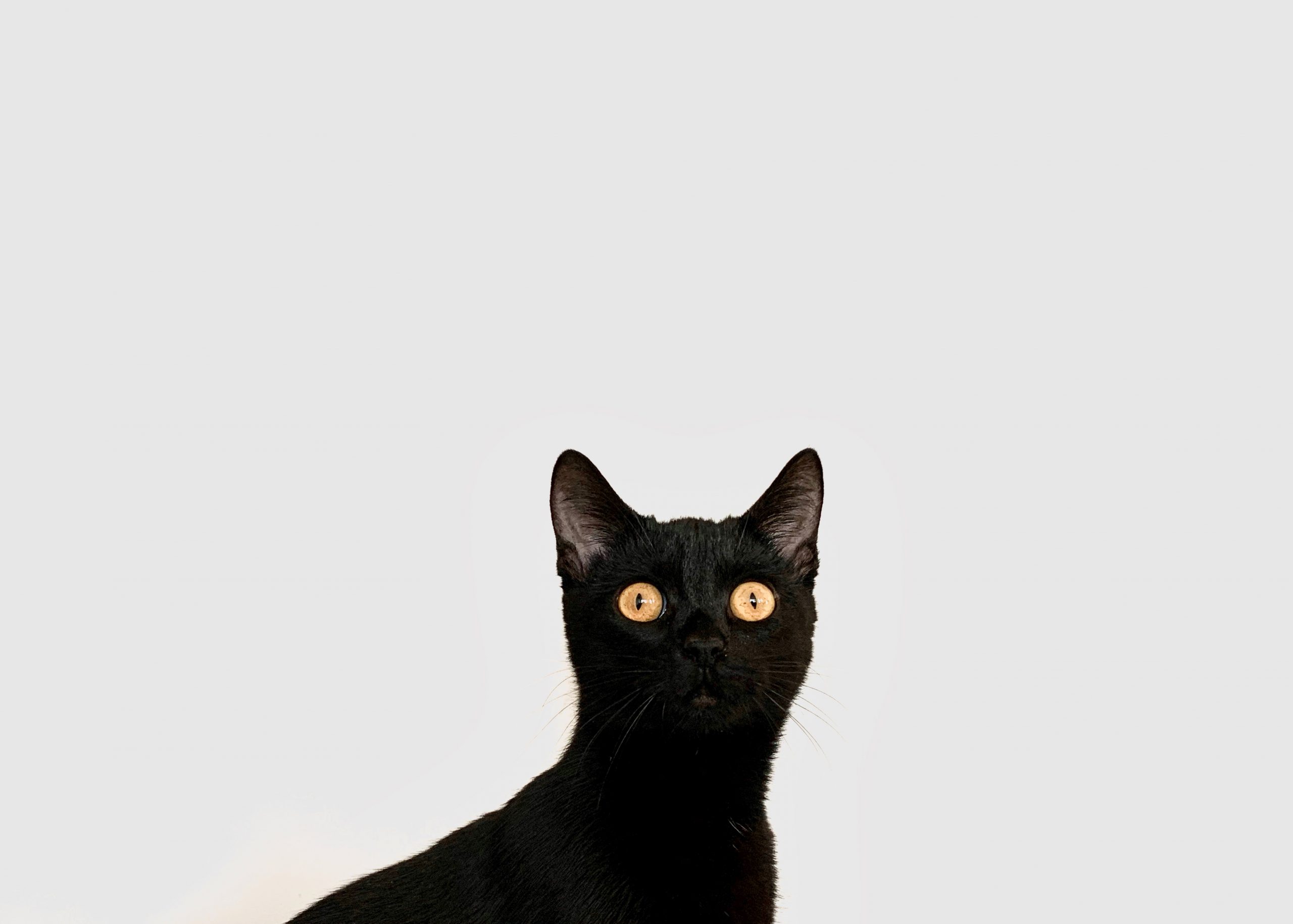Black cats are often the least adopted and most overlooked cats in animal shelters. This begs the question, why are black cats shunned? The answer is nuanced. Some people believe it’s because their features are less visible in photos and, as a result, their listings on adoption websites are unattractive. Other people simply assume that black cats are bad luck. To better understand this phenomenon, the team at Chico has prepared a summary of the myths and superstitions surrounding black cats.
Black cats are bad luck
Many of the negative superstitions associated with black cats come from a poem written by a Roman poet named Ovid. The poem tells the story of the goddess Diana, who fled Egypt to hide from the gods. To fool them, she assumed the appearance of a black cat in a nod to the famous Egyptian goddess Bastet, who had the body of a woman but the head of a cat.
In the year 375, emperor Theodosius I outlawed all pagan religions. However, the negative association with the goddess Bastet and black cats remained widely believed until 1255. After, Pope Gregory IX depicted black cats as satanic, half-human, half-feline creatures that were very similar to the Egyptian goddess Bastet.
At the same time, anyone in Europe who owned a black cat was thought to be practising witchcraft or black magic. This small furry animal was said to be the embodiment of the devil. Allegedly, some Satanists worshipped these animals, and certain sects sacrificed black cats to satisfy the devil.
For decades, witches were systematically depicted with a black cat at their side. When witch hunts were in full swing, black cats were hunted down along with them. Black cats were also often associated with death. For a long time, these poor felines were thrown into bonfires on St. John’s Day.
Fortunately, black cats slowly improved their reputation thanks to influential people who sang their praises. For example, Louis XV put an end to the barbaric tradition of burning black cats on St. John’s Day.
Even today, crossing a black cat is considered a bad omen in North American popular culture. In addition, black cats continue to be associated with witches and Halloween, especially in scary movies. Unfortunately, there’s still a long way to go before the public stops fearing these dark-furred felines.
Black cats are a symbol of happiness
On the other hand, in some cultures, black cats are a symbol of luck and happiness. For example, in England, the Netherlands and Asia, black cats are respected and adored. In Japan, seeing a black cat is said to improve your love life. In Scottish tradition, a black cat that shows up at your home is said to bring good fortune. In Southern England, some people believe that every black cat has at least one white hair. If you can locate it and pull it out, you’ll have good luck. In some parts of the world, you must make a wish if you see a black cat.
In the United Kingdom, black cats have been synonymous with good luck since Napoleon’s defeat at Waterloo. Legend has it that the emperor saw a black cat walking around shortly before the battle began.
Breeds of black cats
There isn’t only one type of cat that has black fur. In fact, there are several breeds, including:
- American curl
- Turkish angora
- American bobtail
- Bombay
- European
- Maine coon
- Manx
- Norwegian
- Persian
- Ragamuffin
- Siberian
- Sphynx
Black cat breeds have diverse personalities and a range of grooming requirements.
Black Cat Appreciation Day
Did you know that there’s a Black Cat Appreciation Day? On August 17, organizations from around the world raise awareness about black cats in an effort to encourage cat lovers to adopt one of these dark-furred felines from their local shelter.
Chico: cat care specialists
Whether you have a black, white, grey, orange or tabby cat, Chico has everything you need to keep your pet happy and healthy. We have an impressive selection of food, toys, treats and accessories. Our stores also offer grooming services. We look forward to serving you!

